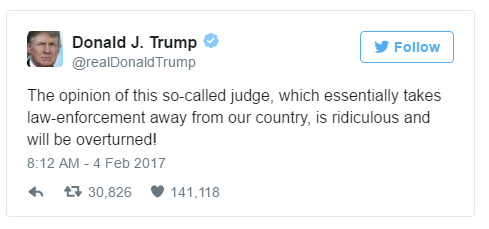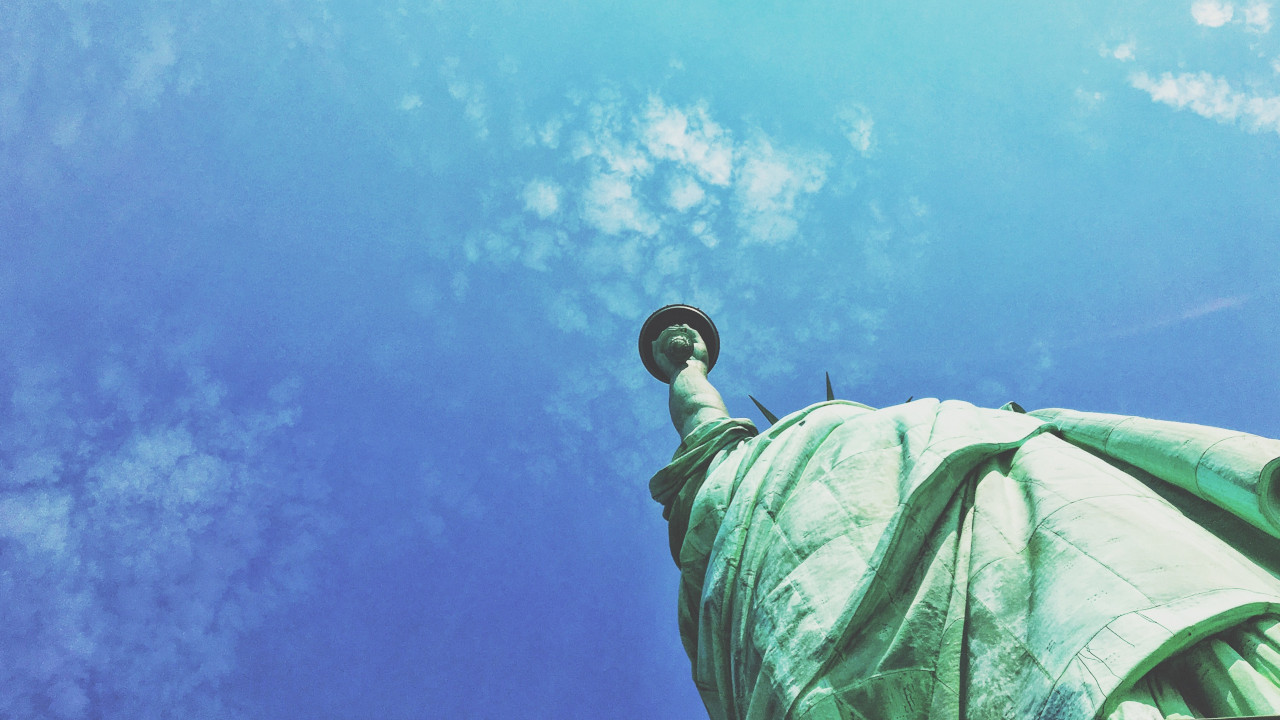During my research for last week’s supplier report, it was clear that President Trump’s immigration policies were a major pain point for IT companies. It was such a reoccurring thread that I felt I needed to go deeper to better understand the situation.
On January 27th, 2017 Donald J. Trump released an executive order that modified travel rights into the United States from several countries.
The executive order imposed a 90-day travel ban on the citizens of seven predominately Muslim countries: Iraq, Syria, Iran, Sudan, Libya, Somalia and Yemen. It also suspends the U.S. Refugee Admissions Program for 120 days. Additionally, it indefinitely prohibits Syrian refugees from entering the U.S.
As of February 5th, the Department of Justice is blocking the President’s executive order:
The US Justice Department filed an appeal just after midnight Sunday, asking to pause a sweeping decision from the judge that temporarily halted enforcement of several key provisions of President Trump’s executive order.
The status of the executive order has fluctuated during last week, and it is clear that President Trump is planning to fight this most recent setback:

Trump’s modification of immigration policy has many in the technology industry concerned that the order was just the first step of more sweeping immigration reforms. It is being reported that the Trump administration is also drafting modifications to the H-1B visa program.
The US H-1B visa is a non-immigrant visa that allows US companies to employ graduate level workers in specialty occupations that require theoretical or technical expertise in specialized fields such as in IT, finance, accounting, architecture, engineering, mathematics, science, medicine, etc.
The program allows for 65,000 (+20,000 additional IT workers) into the country annually. Depending on the country, a worker can stay in the United States for 3 years with an option for an additional 3 year renewal.
Although there are annual controls on who is accepted into the via program, there doesn’t seem to be precise records on how many people in total are currently working in the U.S. under the H-1B visa program. It is estimated to be between 650,000-850,000.
White House press secretary Sean Spicer said the possible executive order on work visas “is part of a larger immigration effort” and stems from “an overall need to look at all of these measures.” C-level executives from many of the large technology firms have denounced this activity:
Microsoft CEO Satya Nadella:
“There is no place for bias or bigotry in any society, in any context. That’s where we start from,” Nadella told employees. “It is the enlightened immigration policy of this country that even made it possible for me to come here in the first place, and gave me all this opportunity.”
Google Co-Founder Sergey Brin:
“I think it’s important to not frame this debate as being ‘liberal’ versus ‘Republican’ and so forth,” Brin told the crowd. “It’s a debate about fundamental values, about thoughtful policymaking and many of the other things that I think are — apparently not universally adored — but I think the vast majority of our country and of our legislators and so forth support.”
Apple CEO Tim Cook sent an email to employees (and has not yet publicly commented):
There are employees at Apple who are directly affected by yesterday’s immigration order. Our HR, Legal and Security teams are in contact with them, and Apple will do everything we can to support them. We’re providing resources on AppleWeb for anyone with questions or concerns about immigration policies. And we have reached out to the White House to explain the negative effect on our coworkers and our company.
As I’ve said many times, diversity makes our team stronger. And if there’s one thing I know about the people at Apple, it’s the depth of our empathy and support for one another. It’s as important now as it’s ever been, and it will not weaken one bit. I know I can count on all of you to make sure everyone at Apple feels welcome, respected and valued.
Perhaps the Trump administration’s investigation and overhaul of the H-1B program is due to accusations of companies abusing the program. For example, Disney has been accused of laying off qualified domestic workers in favor of cheaper H-1B workers coming from India.
While the argument is being made that American interests are being protected by these measures, there is concern that by increasing the wage requirements for H-1B workers and making it more difficult to get these resources, US companies will just shift the job entirely to cheaper labor markets like India:
India’s technology companies, led by Tata Consultancy Services Ltd, Infosys and Wipro, have argued they are helping corporations become more competitive by handling their technology operations with specialized staff. They also contend the visa programs allow them to keep jobs in the U.S. and that if they have to pay more for staff, they will handle more of the work remotely from less expensive markets like India.
This is (clearly) a complicated issue that only gets more complex through a political filter. It seems possible that the H-1B program has been abused in the past and it is alarming that there isn’t precise documentation on how many people are working under the program currently.
The United States is a country that was forged through immigration and there are many examples of people coming here with nothing and creating companies and jobs. Turning away from that cultural identity can be damaging and have long lasting impact.
Photo: Ferdinand Stöhr


